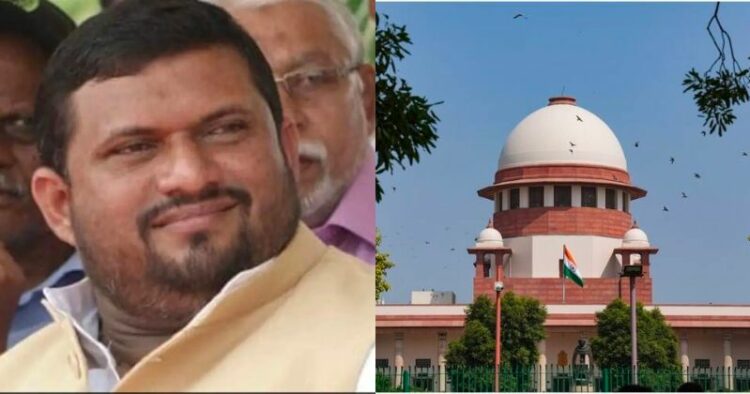A Lucknow-based Advocate Ashok Pandey has moved a plea before the Supreme Court challenging the restoration of Nationalist Congress Party (NCP) leader and Lakshadweep MP Mohammed Faizal Khan’s Lok Sabha membership. Mohammad Faizal’s membership was restored last month after the Kerala High Court granted a stay on conviction, on January 25, in an attempt to murder case.
The petitioner contends that once an elected representative loses their office after they are disqualified by operation of law in Articles 102, 191 of the Constitution of India r/w Section 8(3) of the Representative of People Act, 1951, then the such representative will continue to remain disqualified till the higher court acquits them.
The plea argues that once Mohammad Faizal lost his Lok Sabha membership after being convicted in an attempt to murder case and being sentenced to 10 years imprisonment, the Speaker of the Lok Sabha erred in restoring his membership.
The plea submits, “MP Mohammed Faizal was disqualified by operation of law from the date on which he suffered conviction under section 307 IPC and was sentenced to ten years RI. The order of the Speaker was merely a formal order through which the vacancy of the office of membership of Mohammad Faizal Khan from the office Lok Sabha was notified Mohammad Faizal Khan is disqualified from being chosen as or from being a member of Parliament and state legislature till his conviction is not set aside by the court of appeal and so to restore his membership and to permit him to continue to work as Member of Parliament is in clear violation of article 102 r/w section 8 (3) of the R P Act 1951.”
Furthermore, the petitioner pleads that the SC should decide the issue whether a court of appeal can stay the conviction of an accused, arguing that while Section 389 of the Criminal Procedure Code (CrPC) allows a court of appeal to hear an appeal against the conviction and sentence, suspend the sentence and release the appellant on bail, it does not permit the court to suspend the conviction.
It is pertinent to note that the SC’s decision in Lok Prahari v Election Commission of India and others (2018) held that once the court of appeal stays the conviction of an MP or an MLA, then the disqualification u/s 8(1), (2) and (3) of the Representative of the People Act, 2915 will not operate.
Kerala High Court Suspends Mohammad Faizal’s Conviction
On January 25, the Kerala High Court suspended Faizal’s conviction and sentence for an attempt to murder after he challenged the trial court’s verdict convicting him u/s 143, 147, 148, 307, 324, 342, 448, 427, 506 read with 149 of the Indian Penal Code (IPC) relating to offences relating to rioting, attempt to murder, violence and kidnapping. The trial court sentenced Faizal and three others to ten years of rigorous imprisonment on January 11.
The Kerala High Court observed, “The societal interest in averting an expensive election that too, when the elected candidate can continue for a limited period alone if the fresh election is conducted, cannot be brushed aside by this court. The societal interest and the need to have purity in politics and elections will have to be balanced.”
The Kerala High Court suspended the conviction and the sentence for Faizal, it merely suspended the sentence for the other three accused. It is pertinent to note that the Kerala High Court stated, “The societal interest in averting an expensive election that too, when the elected candidate can continue for a limited period alone if the fresh election is conducted, cannot be brushed aside by this court,” while suspending Faizal’s conviction.
Supreme Court’s Criticism of Kerala High Court’s Reasoning
On March 29, the SC remarked that there could not be a separate rule for an elected representative and common people for suspension of conviction and sentence in a criminal case while hearing a plea concerning Mohammad Faizal’s conviction and disqualification from Lok Sabha.
The SC said, “Unless an appellate court finds that prima facie it’s a case of acquittal, a stay on conviction cannot be given. Just because there is a disqualification, different rules cannot kick in.”
The SC made these observations on Kerala High Court’s order which took into account that Faizal’s seat will be vacant and the polls would cost the exchequer as he is an elected representative while granting him a stay on conviction. The SC said, “The High Court saying that election expenditure will be increased is totally irrelevant; extraneous; nothing to do with the issue.” Furthermore, it added, “it is only in exceptional cases that a court should stay conviction. This should not be a run of the mill case where you ask and get a stay.”




















Comments